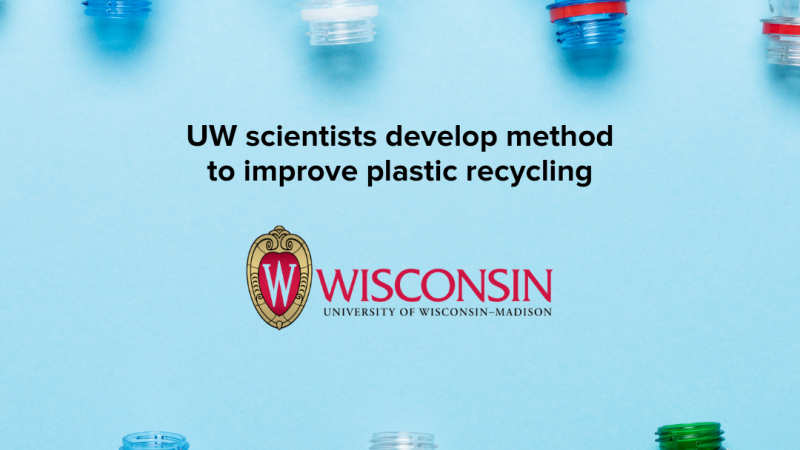Scientists in Madison have developed a method for turning plastic waste into more valuable materials, according to a new study.
The work was led by George Huber, a professor of chemical and biological engineering at UW-Madison. In a release from the university, he says “there’s a huge market” for the products the team is making.
“There are so many different products and so many routes we can pursue with this platform technology … I think it really could change the plastic recycling industry,” he said.
The new method starts with an existing chemical processing technique called pyrolysis, which uses high temperatures in an oxygen-free environment to break down plastics into a liquid mixture called “pyrolysis oil.” This includes chemicals called olefins, which are widely used to make various polymers, as well as other compounds.
After recovering the olefins from the oil mixture, the UW-Madison researchers process them using a chemical reaction that requires less energy than the current industry approach, according to the university’s release. This process changes the olefins into materials called aldehydes, which can be broken down further into other useful chemicals.
“These products can be used to make a wide range of materials that are higher value,” Huber said.
Postdoctoral researcher Houqian Li notes recycling companies currently “don’t have a really good approach” for upgrading pyrolysis oil.
“In this case, we can get high-value alcohols worth $1,200 to $6,000 per ton from waste plastics, which are only worth about $100 per ton,” Li said. “In addition, this process uses existing technology and techniques. It’s relatively easy to scale up.”
Their work was detailed in a study published last week in the journal Science.
See the full study: https://www.science.org/doi/10.1126/science.adh1853
See the release: https://www.wisbusiness.com/2023/uw-madison-recycling-plastic-could-get-more-efficient-profitable/



